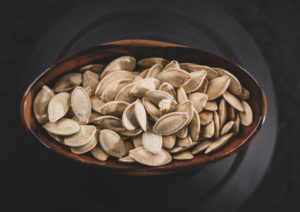How Long Do Vegetable Seeds Last?

Introduction: Why store seeds?
Many people ask me the question, how long do vegetable seeds last? There are many reasons to store vegetable seeds. Perhaps you want to save money by buying seeds in bulk, or you may want to preserve a heirloom variety. Storing seeds properly can extend their shelf life for many years. Here are some tips on how to store your seeds so you can enjoy them for seasons to come.
Seeds are living organisms and need to be stored in a cool, dry place with little light exposure. An airtight container such as a mason jar is ideal. You can add a desiccant packet to the container if you live in a humid climate. Be sure to label your containers with the name of the seed, the date it was collected, and any special storage instructions.
There are many reasons to store seeds. Perhaps you want to save money by buying in bulk, or you may want to save seeds from your favourite heirloom plants. Maybe you live in an area with a short growing season and need to start your plants indoors. Whatever the reason, storing seeds is a great way to be prepared for the gardening season.
There are a few things to consider when storing seeds. First, they should be stored in a cool, dry place. A temperature of around 40 degrees Fahrenheit is ideal. Seeds can also be stored in the refrigerator, but make sure they are in an airtight container so they don’t absorb moisture from the air.
Second, consider how long you need to store the seeds. Some vegetables, like onions and carrots, have shorter shelf lives than others, like beans and peas.
What Seeds Last The Longest?
Seeds are the key to a successful garden, and knowing which seeds last the longest can help you get the most out of your efforts. There are many factors to consider when choosing which vegetable seeds to plant, including climate and soil type. However, some seeds are more durable than others and can withstand a wider range of conditions. The following vegetables have seeds that last the longest and are sure to give you a bountiful harvest.
Carrots are a cool-weather crop that can be planted as soon as the ground can be worked in the spring. Carrot seedlings will appear in about two weeks, and the carrots will be ready to harvest in about 60 days. The carrot seeds can remain viable for up to five years if they are stored properly.
How To Store Seeds For Maximum Shelf Life
Storing your vegetable seeds can seem like a daunting task, but with a few simple tips, you can maximize their shelf life.
First and foremost, it’s important to keep your seeds dry. If they become moist, they are more likely to grow mould and mildew, which will shorten their shelf life. The best way to keep them dry is to store them in an airtight container in a cool, dark place.
Another way to extend the shelf life of your seeds is to store them in the freezer. This will prevent them from germinating prematurely. Just be sure to thaw them out before you plant them!
Finally, it’s a good idea to label your seeds with the date that you stored them. That way, you’ll know exactly how long they’ve been sitting on the shelf.
There are a few things to consider when trying to determine which vegetable seeds will last the longest. First, think about the type of seed. Some seeds, like those from legumes, tend to be harder and last longer than others. Additionally, storage conditions can affect a seed’s longevity – if it is too hot or too humid, the seed will not last as long. Finally, how the seed is packaged can also influence its shelf life – if it is in an airtight container, it will last longer than if it is in a paper envelope.
With all of these factors in mind, here are a few vegetables whose seeds have a reputation for lasting a long time: peas, beans, garlic, and onions. All of these seeds are relatively hard and can withstand less-than-ideal storage conditions better than more delicate seeds.
Seeds That Don’t Last As Long And How To Extend Their Shelf Life
One of the challenges that gardeners face is finding ways to make their vegetable seeds last longer. Here are some tips on how to extend the shelf life of your seeds:
1. Store them in a cool, dry place.
2. Keep them in an airtight container.
3. Don’t let them come into contact with moisture or humidity.
4. Check on them regularly and discard any that look damaged or discoloured.
5. Sow them as soon as possible after purchase.
Also, Seeds from annual vegetables. These include lettuce, spinach, and chard. They can last for one to two years if stored in a cool, dry place. Seeds from biennial vegetables. These include carrots, beets, and turnips. They can last for two to three years if stored in a cool, dry place. Seeds from perennial vegetables. These include potatoes and artichokes. They can last for three to five years if stored in a cool, dry place.
Conclusion: When do you know it’s time to say goodbye to your old seeds?
When is it time to say goodbye to your old vegetable seeds? Here are a few things to consider before you let them go.
Seeds have a finite lifespan. They will eventually lose their viability and will no longer be able to produce new plants. The length of time a seed can remain viable depends on the type of seed, but most vegetable seeds will only last for 1-2 years.
The storage conditions of your seeds can also affect their lifespan. Seeds that are stored in cool, dry conditions will last longer than those that are stored in warm, humid conditions. If your seeds have been stored in less than ideal conditions, they may not last as long as you’d like.
If you’re not sure whether your old seeds are still good, it’s always best to err on the side of caution and start with fresh ones.
